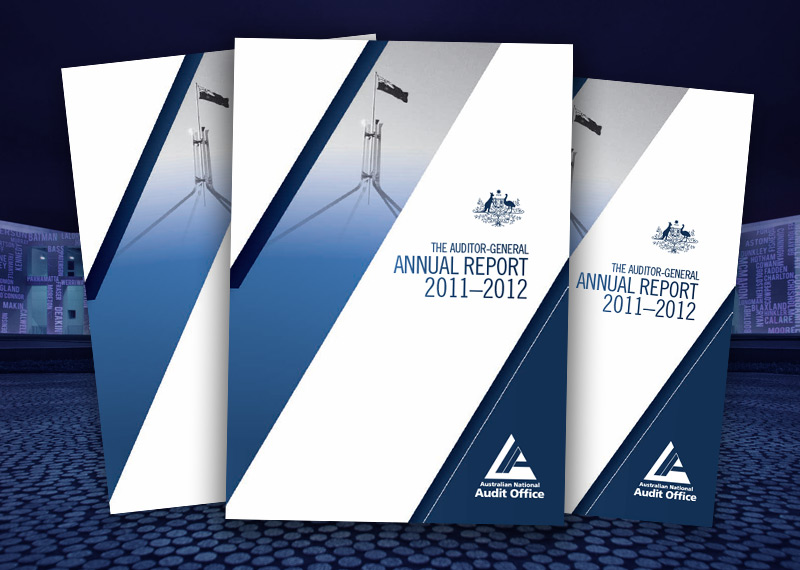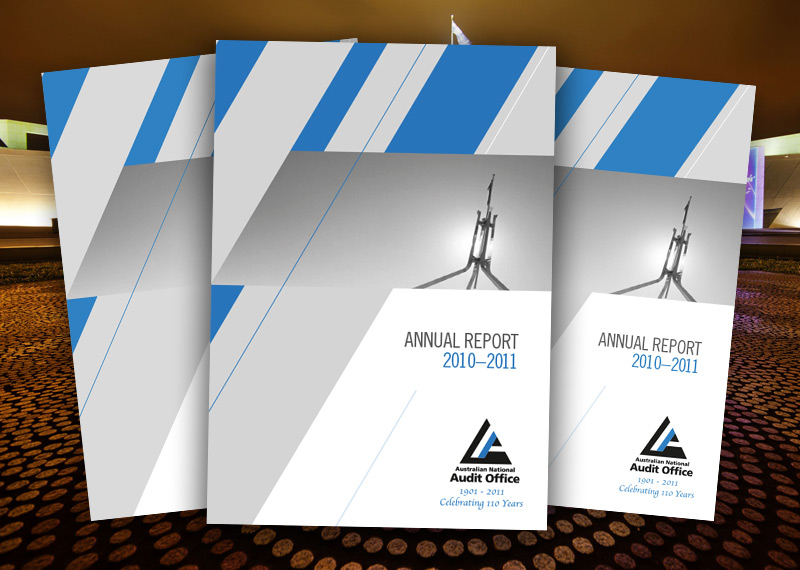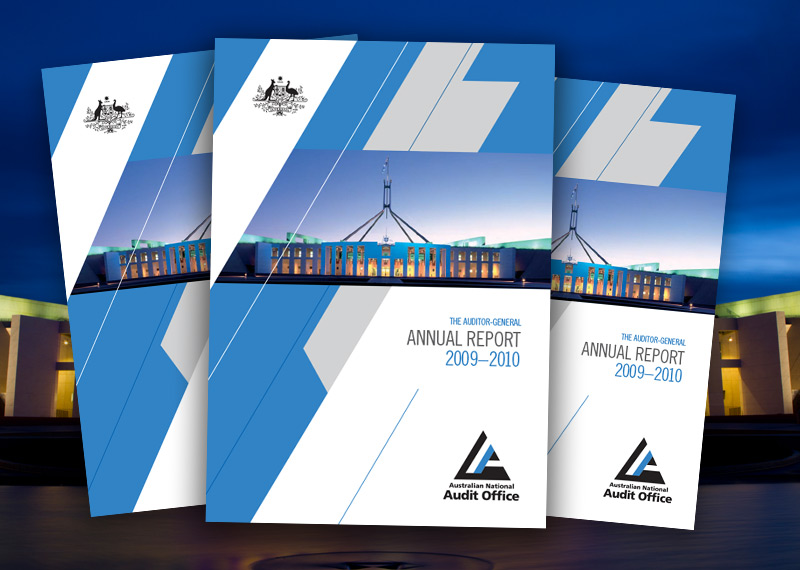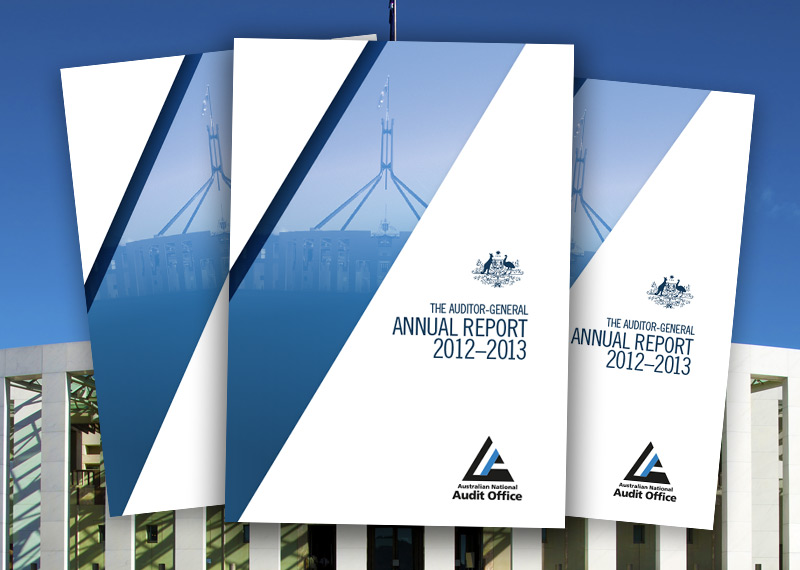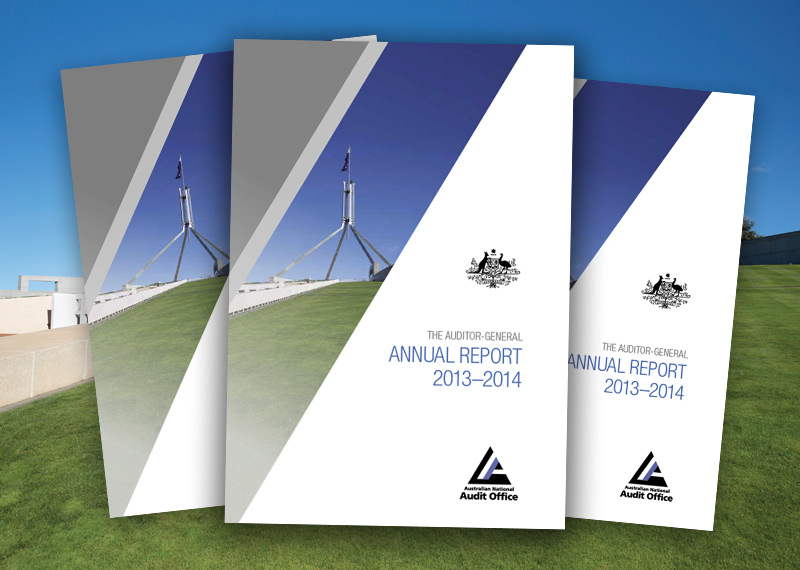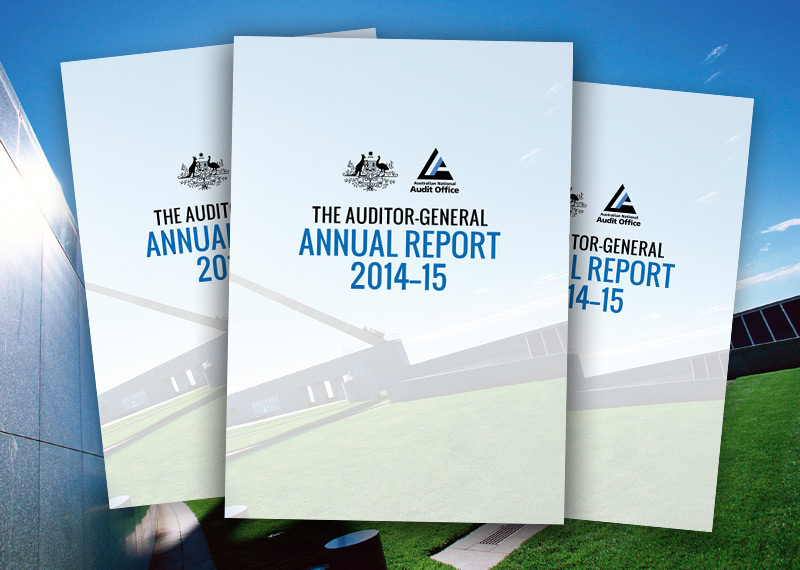Browse our range of reports and publications including performance and financial statement audit reports, assurance review reports, information reports and annual reports.
This annual report documents the performance of the Australian National Audit Office (ANAO) in the financial year ending on 30 June 2012. It presents an overview including the role and vision of the Office, a report on performance, details about management and accountability, and the financial results.
The objective of this audit was to assess the coordination of Australian, State and Territory Government climate change programs and the integrity of measuring and reporting of Australia's greenhouse gas emissions and abatement. Particular emphasis was given to the:
- coordination of Australian Government and State/Territory climate change programs;
- integrity of the national inventory to measure Australia's greenhouse gas emissions; and
- integrity of measuring and reporting government abatement measures.
This annual report documents the performance of the Australian National Audit Office (ANAO) in the financial year ending on 30 June 2011. It includes a foreword by the Auditor-General, an overview including the role and vision of the Office, a report on performance, details about management and accountability, and the financial results.
This annual report documents the performance of the Australian National Audit Office (ANAO) in the financial year ending on 30 June 2010. It includes a foreword by the Auditor-General, an overview including the role and responsibilities and vision of the Office, a report on performance, details about management and accountability, and the financial results.
This annual report documents the performance of the Australian National Audit Office (ANAO) in the financial year ending on 30 June 2013. It addresses the Requirements for Annual Reports for Departments, Executive Agencies and FMA Act Bodies approved by the Joint Committee of Public Accounts and Audit in June 2013; the performance measures set out in the outcomes and programs framework in the 2012–13 Portfolio Budget Statements; section 28 of the Auditor-General Act 1997; and other annual reporting requirements set out in legislation.
This annual report documents the performance of the Australian National Audit Office (ANAO) in the financial year ending on 30 June 2014. It addresses the Requirements for Annual Reports for Departments, Executive Agencies and FMA Act Bodies approved by the Joint Committee of Public Accounts and Audit in May 2014; the performance measures set out in the outcome and programs framework in the 2013–14 Portfolio Budget Statements; section 28 of the Auditor-General Act 1997; and other annual reporting requirements provided for in legislation.
The objective of the audit was to assess the effectiveness of the Department of the Environment and Energy’s arrangements for the preparation and reporting of Australia’s greenhouse gas emissions estimates and projections.
Please direct enquiries relating to reports through our contact page.
This audit would examine the effectiveness of the Australian Public Service Commission’s (APSC’s) implementation of reporting against the Australian Public Service (APS) Strategic Commissiong Framework (the framework), including its methodology for determining whether the intended outcomes of the framework are being achieved.
The APSC issued the framework in October 2023, with the first round of reporting by Australian Government entities due for 2024–25. The framework is intended to strengthen APS capability through reduced reliance on contractors and consultants for core work. The APSC issued an update on 4 November 2024, stating that entities had reported targets totalling $527 million of core capability to be brought in-house in 2024–25.
Please direct enquiries through our contact page.
This report will focus on key selected major Defence acquisition projects in accordance with the Joint Committee of Public Accounts and Audit (JCPAA) MPR Guidelines.
Increased transparency and accountability on progress with major Defence equipment acquisitions has been a focus of parliamentary interest for some time. Beginning in 2007–08, an annual program has been established in conjunction with the Department of Defence (Defence) to enable the ANAO to review and report to the Parliament on the status of major Defence acquisition projects, as set out in the major projects report. The review includes information relating to the cost, schedule and progress towards delivery of required capability of individual projects at 30 June each year and is undertaken at the request of JCPAA.
Please direct enquiries through our contact page.
This annual report documents the performance of the Australian National Audit Office (ANAO) in the financial year ending on 30 June 2015. It addresses the Requirements for Annual Reports for Departments, Executive Agencies and Other Non‑corporate Commonwealth Entities approved by the Joint Committee of Public Accounts and Audit in June 2015; the performance measures set out in the outcome and programs framework in the 2014–15 Portfolio Budget Statements; section 28 of the Auditor‑General Act 1997; and other annual reporting requirements set out in legislation.
This annual report documents the performance of the Australian National Audit Office (ANAO) in the financial year ending on 30 June 2002. It includes a comment by the Auditor-General on Audit independence and effectiveness; an overview of the Auditor-General’s role and responsibilities; a report on performance; details about management and accountability, and the financial statement for the year.
The objective of this benchmarking study of the finance function was to obtain and report on over time, quantitative and qualitative data, relating to finance function activities as they operate in Commonwealth organisations. Over the three year period of the study, the majority of participating Commonwealth organisations have shown an improvement in their quantitative and/or qualitative benchmark results across the range of finance function activities. The Report does not provide specific reasons for differences in performance. However, it does provide guidance as to some of the better practices that participating organisations, and the wider public sector, may wish to adopt, or adapt in order to achieve improved performance in the activities of the finance function.
The report summarises performance audit, financial statement audit and other related activities for the ANAO for the period July to December 2003. The key issues arising from performance audits tabled in this period are summarised against the ANAO themes. The report also summarises financial audits and other financial audit activities conducted by the ANAO during the period July to December 2003. It discusses significant issues such as the: consolidated financial statements and the final budget outcome; harmonisation of Australian Generally accepted accounting practices and Government Finance Statistics; adoption of International Financial Reporting Standards; timing for Financial Statements Preparation; and the audit of the CFS 2002-03.
This benchmarking study was a follow on from ANAO Report No. 14 of 2000-01, Benchmarking the Internal Audit Function, which was published in October 2000. The objective of the study was to obtain and report qualitative and quantitative data on aspects of the internal audit function and compare the public sector internal audit results with equivalent international data to identify better practices and highlight areas for improvement.
The Audit Activity Report: July-December 2002 summarises performance audit, financial audit and other related activities for the ANAO for the period. The key issues arising from the performance audits are summarised against the ANAO themes. The appendices in the report provide a short summary of each of the audits tabled for this period, the audits in progress as at 1 January 2003 and a list of the presentations and papers given by the Auditor-General and ANAO staff.
Mr P.J. Barrett (AM) - Auditor-General for Australia, address to the Department of Environment and Heritage - Sustainability Reporting by the Public Sector
The objective of the audit was to examine the effectiveness of Defence’s quarterly performance report as a mechanism to inform senior stakeholders about risks and issues in the delivery of capability to the Australian Defence Force.
Please direct enquiries through our contact page.
This edition of audit insights draws together key learnings from Australian National Audit Office (ANAO) reports tabled in the Parliament of Australia from October to December 2017. It provides insights into policy and program design – evidence and evaluation, record keeping, and the Australian Government Procurement Contract Reporting information report.
Please direct enquiries through our contact page.
The report summarises the audit and other related activities of the ANAO in the period January to June 2001. Key issues arising from performance audits tabled in this period are summarised against ANAO themes of:
- corporate governance including human resource management, financial management, and performance information;
- service delivery including the impact of e-government;
- procurement and contract management; and
- information technology.
Appendix 1 of the Activity Report provides a short summary of each of the performance audits tabled between 1 January 2001 and 30 June 2001.
- Reports to senior leaders on program progress should provide adequate information for leaders to understand how the program is tracking against scope, schedule and budget. This should include information on any targets or milestone due dates.
- Effective integration of financial and non-financial performance information in annual reports can provide the Parliament and the public with an improved understanding of the connections between the resources agreed by the Parliament and the outcomes delivered.
The audit objective was to assess the effectiveness of risk management, data monitoring and public reporting arrangements associated with the Australian Government's funding of public hospital services under the 2011 National Health Reform Agreement (NHRA).
Please direct enquiries through our contact page.
This audit would examine the Department of Social Services’ (the department’s) management of its Data Exchange (DEX) performance reporting portal.
DEX is a web portal that allows providers receiving government funding to report on program outputs (such as the number of clients assisted) and outcomes (such as improvements in clients’ health and wellbeing). It is underpinned by three principles: providers should spend less time collecting and reporting administrative data and more time helping clients; data collection should focus on client outcomes; and client personal information and privacy is protected. The department uses DEX as the data source for three corporate plan performance measures under its Families and Communities and Disability and Carers programs. DEX has also been extended to other Commonwealth and state government programs, including grant programs delivered through DSS’s Community Grants Hub. While the department is responsible for managing DEX, Services Australia has operated the portal since 2021 as part of its delivery of shared ICT services for the department.
Please direct enquiries through our contact page.
The report summarises the audit and other related activities of the ANAO in the period June to December 2000. It provides a consolidated report of the ANAO's integrated audit products tabled during the period. Key issues examined in the ANAO's performance audit activity in the period were:
- risk management in a corporate governance framework;
- outsourcing and asset sales;
- contract management;
- service delivery;
- data management/management information systems; and
- legislative implementation.
The report also summarised the results of a report summarising the final results of the audits of the financial statements of Commonwealth entities; and dealt with issues regarding financial management issues, controls and processes arising from the financial audit activities conducted during the period.
Given the importance of customer feedback to Centrelink's business, the ANAO considered it timely to conduct a series of performance audits relating to Centrelink's customer feedback systems, particularly in relation to its delivery of the services then provided on behalf of FaCS. The overarching objective of this series of ANAO performance audits of Centrelink's customer feedback systems was to assess whether Centrelink has effective processes and systems for gathering, measuring, reporting and responding effectively to customer feedback, including in relation to customer satisfaction with Centrelink services and processes.
- When preparing PBSs, corporate plans and annual reports, entities should consider the needs of the Parliament as the primary user of these documents. In particular, the Parliament’s need for a clear read within reporting a cycle, across reporting cycles and between entities, which is aided by clear, consistent, comparable and reconcilable reporting.
This edition of audit insights covers audit reports tabled in Parliament during the fourth quarter of 2017–18 with a focus on the key learnings relating to cyber resilience. Cyber security is an increasing risk across government and one that requires attention by Accountable Authorities.
Please direct enquiries through our contact page.
The speech delivered by the Acting Deputy Auditor-General and the presentations by ANAO speakers at the Financial and Performance Reporting Forum held on Friday 5 July 2024 are now available.
If you would like a copy of the video recording please contact External.Relations@anao.gov.au
If you have any questions about the Financial and Performance Reporting Forum please contact External.Relations@anao.gov.au
Major capital equipment contributes importantly to the capabilities of the Australian Defence Force (ADF) to achieve the Defence mission, that is, the defence of Australia and its national interests. The Defence Materiel Organisation (DMO) is the relatively new Defence organisation responsible for the acquisition and through-life support of Defence equipment and systems. DMO's stated purpose is to equip and sustain the ADF. In 2001-02, it will spend $2.9 billion on progressing some 270 major capital equipment acquisition projects. This preliminary study for the audit focused on DMO reporting on the status of major equipment acquisition projects.
- Entity processes for preparing PBSs, corporate plans and annual reports should be coordinated so as to implement the clear read principle across the product suite and the complete cycle of performance measurement and reporting. Effective coordination facilitates a holistic approach to the preparation and publication of PBSs, corporate plans and annual reports.
